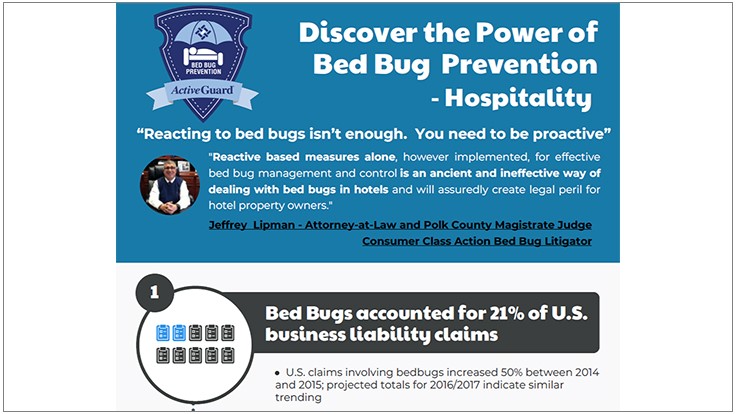The Duty Of Insect Control In Food Safety And Hygiene
The Duty Of Insect Control In Food Safety And Hygiene
Blog Article
Posted By-Haslund Glover
Are you aware of the covert risks that parasites present to the security and health of your food? From rats to bugs, these unwanted visitors can contaminate your ingredients, surface areas, and storage areas.
This write-up checks out the crucial duty of pest control in maintaining the highest possible criteria of food security and health. Discover reliable approaches and prevention procedures that will certainly assist you shield your service, customers, and credibility.
Do not allow bugs endanger the quality of your food.
The Influence of Pests on Food Safety and Health
In your kitchen area, pests can have a considerable effect on food safety and security and hygiene. These unwanted visitors, such as rats, insects, and cockroaches, can contaminate your food, surfaces, and utensils with damaging bacteria, viruses, and parasites. They can quickly access your cupboard, closets, and even your fridge, leaving behind droppings, pee, and hair.
Not just can they ruin your food by chewing through packaging, but they can also spread diseases like Salmonella, E.coli, and Listeria. Envision preparing a dish for your family, unaware that the active ingredients you're using are currently polluted.
It's important to take instant activity to stop and control pests in your kitchen area. Routine cleansing, proper food storage space, and professional bug control actions are essential to guarantee food security and preserve a hygienic environment in your cooking area.
Reliable Pest Control Strategies for the Food Market
Applying effective insect control methods is essential for preserving food safety and health in the food industry. By executing these strategies, you can protect against parasites from contaminating the food and make certain that your items are risk-free for intake.
One effective strategy is to routinely evaluate and monitor your center for signs of pest activity. This includes monitoring for droppings, nests, or any damage triggered by pests.
It's likewise important to secure all entry points to avoid bugs from entering the facility. Routine cleansing and sanitation are important, as insects are attracted to food residue and spills.
In addition, proper waste administration is vital to stop the accumulation of food waste that can bring in parasites.
Preserving Hygiene Specifications Through Bug Avoidance Procedures
To keep health criteria, you have to regularly implement parasite avoidance steps. By taking proactive steps to avoid pests from entering your food establishment, you can guarantee the safety and sanitation of your facilities. Right here are some efficient insect avoidance steps to take into consideration:
- Seal all fractures and crevices: Parasites can go into with even the tiniest openings. Consistently inspect and secure any kind of gaps in doors, windows, walls, and floors to keep parasites out.
- Correct waste monitoring: Get rid of food waste without delay and safely in secured containers. Rodent activity signs will certainly lessen the tourist attraction of pests and stop invasions.
- Regular cleansing and sterilizing: Keeping cleanliness in your establishment is important. Consistently clean and sanitize all areas, paying unique interest to areas where pests may hide or reproduce.
- Carry out a surveillance system: Regularly check your facilities for indicators of insect task. Install pest tracking devices, such as traps or sensors, to identify and deal with any kind of prospective problems beforehand.
Chemical control keep in mind, when it involves food safety and health, insect control plays a crucial function.
By executing efficient parasite control strategies and preventive measures, we can make certain the highest criteria of cleanliness and safety and security in the food industry.
Don't allow pests jeopardize the top quality of our food; let's stand together and secure our health and wellness and well-being.
